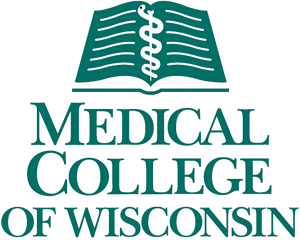Position Description:
As a Postdoctoral Researcher, you will, according to the National Institute of Health (NIH) and the National Science Foundation (NSF), be an individual who has received a doctoral degree (or equivalent) and is engaged in a temporary and defined period of mentored advanced research training to enhance the professional skills and research independence needed to pursue his or her chosen career path. In addition, according to the National Postdoc Association (NPA), Postdoctoral appointees can pursue basic, clinical or translational projects so long as their primary effort is devoted toward their own scholarship. Postdocs are essential to the scholarly mission of the mentor and host institution and thus are expected to have the freedom to publish the results of their scholarship.
The DREAM (Developing Resilience to Ease Anguish in Mourning) Lab, led by Dr. Joseph Goveas within the Department of Psychiatry and Behavioral Medicine at the Medical College of Wisconsin, is seeking a Postdoctoral Fellow to join our multidisciplinary neuroimaging research team. Our lab's mission is to uncover neurobiological biomarkers predictive of Prolonged Grief Disorder (PGD) onset and treatment response. With an extensive longitudinal dataset already collected, including multimodal MRI (e.g., resting-state connectivity, DTI, quantitative morphometry, task-induced BOLD activation, cerebral blood flow), along with detailed clinical and behavioral data, we are scaling up analytic efforts to answer fundamental questions about how grief unfolds over time-especially in older adults-and what differentiates resilient adaptation from PGD.
Current projects include developing predictive models of chronic grief outcomes in acutely grieving adults, characterizing the heterogeneity in grief trajectories, and investigating how targeted interventions modulate brain networks and relate to clinical improvement in PGD.
The Fellow will contribute to the development of computational brain models of grief and resilience in older adults, participating in multiple projects that employ advanced functional magnetic resonance imaging (fMRI) techniques to investigate brain network mechanisms underlying diverse grief trajectories, including adaptive (resilient) responses and complications such as PGD. This position also offers a unique opportunity to work with rich, multimodal longitudinal datasets from both acutely and chronically grieving adults.
It is expected that postdocs at MCW, with the assistance of their supervisor, will:
- Transition to career independence through the development of professional skills that enable the postdoc to actively pursue a career of their own choosing.
- Be supervised by at least one senior scholar who actively promotes the postdoc's professional development.
- Establish an individual development plan (IDP) that incorporates equally the postdoc's career and training goals and the mentor's research goals.
- Pursue basic, clinical, or translational projects so long as effort is focused primarily on research.
- Publish results of the postdoc's research and scholarship during their appointment.
- The postdoctoral appointment is temporary by nature, the aggregate amount of time spent as a postdoc is recommended to not exceed five years (not including family medical leave or maternity/paternity leave).
- As postdocs are important members of the host institution's community, appropriate levels of compensation, health care, and other benefits commensurate with their essential status should be afforded, independent of the postdoc's source of funding.
Responsibilities:
- Perform advanced computational analyses on longitudinal brain imaging and behavioral datasets.
- Design, implement, and refine innovative neuroimaging data processing pipelines.
- Report to the Principal Investigator and closely collaborate with multidisciplinary teams across the Center for Imaging Research, Neuroscience Center, and departments of Psychiatry, Biophysics, and Radiology.
- Lead manuscript preparation and contribute to high-impact scientific publications.
- Engage in regular meetings with the PI and research team to interpret findings and optimize methodologies.
- Attend and present at scientific conferences.
Knowledge - Skills - Abilities
Programming experience is required. Prior experience performing neuroimaging analysis is strongly preferred.
- Programming: Proficiency in Python is required. Experience working in Linux environment and writing Bash scripts is also expected.
- Neuroimaging Analysis: Programming and prior experience with neuroimaging data analysis is required.
- Statistical Analysis: Solid foundation in statistical modeling and data analysis is required. Experience with longitudinal modeling, machine learning methods, subgroup analysis, or other advanced modeling techniques is highly desirable.
- Software Proficiency: Experience with neuroimaging tools such as AFNI, SPM, FSL, Freesurfer, or similar is a plus.
- Communication: Strong presentation skills with the ability to clearly communicate complex scientific concepts.
- Scientific Literacy: Excellent English reading, writing, speaking, and comprehension skills in scientific contexts.
- Research Output: Experience preparing scientific reports, abstracts, manuscripts, and grant submissions is preferred.
- Problem Solving: Demonstrated ability in critical thinking and solving complex research problems.
- Mentoring: An aptitude to mentor student and research assistants
Preferred Schedule:
M-F
Position Requirements:
Minimum Qualifications:
Minimum education: PhD in a relevant scientific field (e.g., computer science, image processing, or computational neuroscience).
Minimum experience: 0 years
Preferred Qualifications:
Preferred education: PhD in a scientific field
Preferred experience: Strong programming and neuroimaging analysis experience. Familiarity with longitudinal modeling or machine learning techniques is desirable.
Why MCW?
- Outstanding Healthcare Coverage, including but not limited to Health, Vision, and Dental.
- 403B Retirement Package
- Competitive Vacation, Sick Time, and Paid Holidays
MCW as an Equal Opportunity Employer and Commitment to Non-Discrimination
The Medical College of Wisconsin (MCW) is an Equal Opportunity Employer. We are committed to fostering an inclusive community of outstanding faculty, staff, and students, as well as ensuring equal educational opportunity, employment, and access to services, programs, and activities, without regard to an individual's race, color, national origin, religion, age, disability, sex, gender identity/expression, sexual orientation, marital status, pregnancy, predisposing genetic characteristic, or military status. Employees, students, applicants, or other members of the MCW community (including but not limited to vendors, visitors, and guests) may not be subjected to harassment that is prohibited by law or treated adversely or retaliated against based upon a protected characteristic.
.
 Medical College of Wisconsin
Medical College of Wisconsin paid holidays, sick time, 403(b)
paid holidays, sick time, 403(b)

 Nov 25, 2025
Nov 25, 2025 
